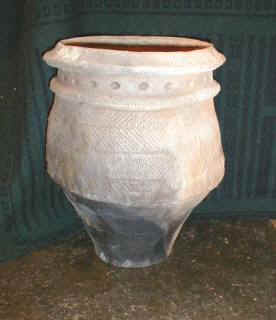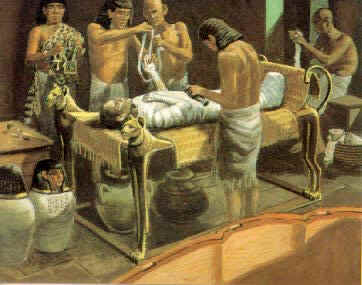
The discovery of fire was essential for
shaping manís interest in controlling chemical change.
It was soon found that mixing fire with food changed the texture and
taste of the food, and that mixing fire with mud produced hard substances
capable of holding food. This was the origin of ceramics, developed during the Stone
Age, prior to 8000 BC.

4000 BC
marked the important discovery of metal (gold and copper). By 2000 BC, man had heated
copper and tin ores together and produced bronze, hence the Bronze Age.
Such an alloy was strong and available enough to be used in weapons.
Bronze Age urn: image reproduced from http://www.e-scotland.co.uk/applepot/listings/20.html
The Iron Age originated around 1500
BC after high temperatures were used to extract iron from its ore.
The metal would combine with carbon during the process, which
strengthened it and produced steel, a malleable and strong alloy.

However by 900 BC the Egyptians (see right) were already experimenting with other forms of chemistry, namely the preservation of human bodies with pigments and natural juices.
Mummification: image reproduced from http://village.pekin.net/lt/d108/46hp.nsf/Files/nrengel/$File/mummification.jpg
Back to home page